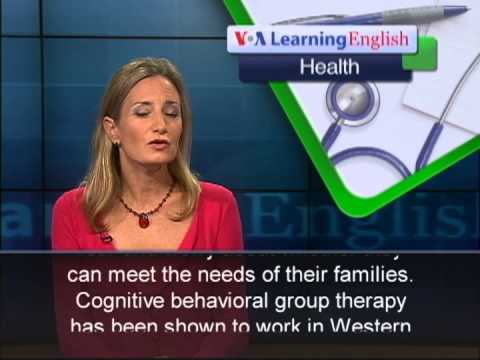Using Group Cognitive Therapy to Help Rape Victims in DRC
 |
From VOA Learning English, this is the Health Report. Group cognitive therapy is a form of mental health treatment. A study has found that this form of talk therapy can help rape victims in countries where there are few trained psychologists. Researchers say the findings show that counselors in a community can be trained to provide group cognitive therapy. Judith Bass is a professor of mental health at the Johns Hopkins School of Public Health in Baltimore, Maryland. She says rape victims can face a series of short and long-term problems. These include depression, anxiety and post-traumatic stress disorder. Sudden sounds or events can bring back memories of the attack. Professor Bass says sexual violence affects not just the victims but also their communities. Warring groups use rape to dehumanize and humiliate their opponents. Judith Bass says women who are raped often suffer from social stigma in their communities. They experience fear and worry about whether they can meet the needs of their families. Cognitive behavioral group therapy has been shown to work in Western countries. Judith Bass and other researchers investigated whether it could help women in the Democratic Republic of Congo. The DRC has faced more than 30 years of conflict since 1960. After six months, 42 percent of those in individual counseling who were depressed at the start of the therapy no longer showed signs of depression. By comparison, 70 percent of those in the cognitive therapy groups were no longer depressed. In these groups, the women discussed goals and learned skills for overcoming their depression and symptoms of post-traumatic stress disorder. For VOA Learning English, I'm Laurel Bowman.
|




